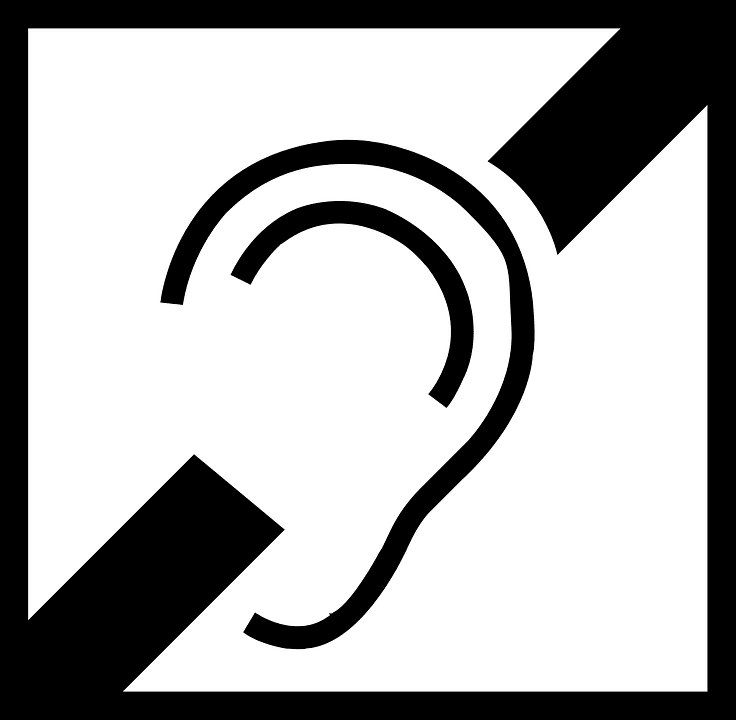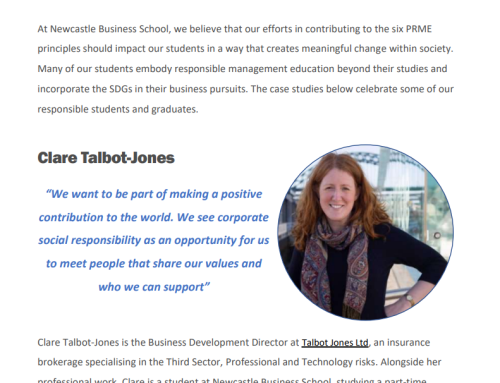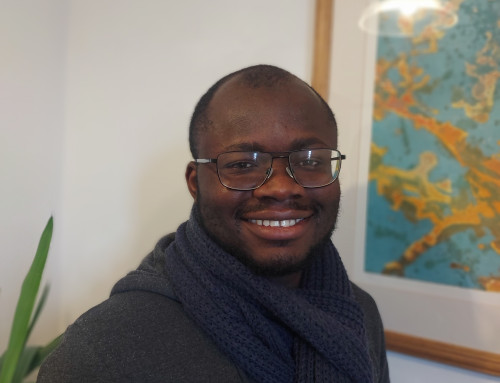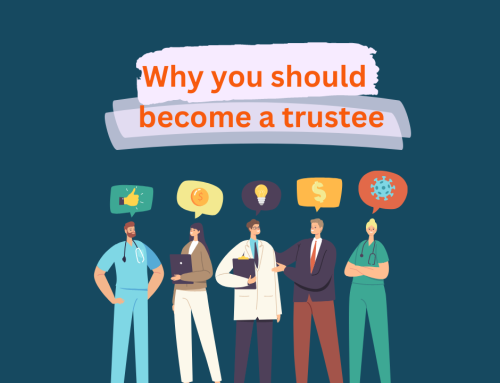On Tuesday I spotted it was national Deaf Awareness Week and I thought it would be a great opportunity to find out more about deafness, how people are affected, and how we can support those in our community with hearing impairments. With 11 million people confronting deafness and hearing loss in the UK, it’s well worth informing ourselves about it.
As I started scrolling through online resources to inform my post, I had a better idea: why not get in touch with three of my friends with hearing impairments and actually find out from them? I realised that even though I’ve known actor Nick, my course and housemate from university days, for 16 years, I’ve only talked very superficially to him about his tinnitus. Although I’d talked to Elizabeth, my school-gate friend who works in finance for a local charity a little about signing, I’d never found out much about how her deafness had impacted her life. And I hadn’t discussed it at all with Clare, a friend from church, who works as an engineer in the wind industry. I got in touch with a few questions, and here’s what they had to say:
Nick
What is tinnitus?
Tinnitus is very simply a ringing in the ear which is usually high pitched. The ringing can either be very loud or relatively quiet depending on the person and origin of their tinnitus. Most people experience tinnitus at some point in their life such as after listening to loud music.
It is brought about through various causes, in my case it was as a result of a bout of severe flu that I had at the age of 14. The doctor at first diagnosed it as being a build up of catarrh in my airways but after seeing a specialist, I discovered that the flu had killed off some of my hearing receptor cells which then triggered the tinnitus. My understanding is that in most cases tinnitus is not curable.
How does it affect you?
It affects me every day as my communication and hearing is limited in comparison to most people. I struggle to communicate in loud places and if someone stands on the wrong side of me then I struggle to hear them. I am also very reliant on my right ear which means I often have to turn my head to hear people. I believe it also affects my balance.
Most people are not aware of my deafness or tinnitus unless I tell them but what they don’t realise is that I have to make that much more of an effort to hear them. Being diagnosed with life long tinnitus is very difficult to take, especially at a young age, but like anyone who goes through a loss like that, you learn how to cope and adapt.
When people are aware that you have a hearing impairment, is there anything they can do to help you?
I’ve been deaf in one ear now for twenty years during which time I’ve sought all sorts of treatment to help me with my hearing loss and tinnitus, from hearing aids to cranial therapy most of which have had little to no effect. Apart from speaking clearly and standing on my good side, I suspect there is probably not a lot you can do to help me though I am always happy to listen-or try to!
Elizabeth
What was it like growing up with impaired hearing?
I have had a hearing impairment since birth as both of my parents are profoundly deaf. I wear two hearing aids which help me to hear as without them I cannot hear anything and feel extremely vulnerable.
As a child I was constantly in and out of the hospital/audiology department having hearing tests as well as attending additional classes to help with my reading and writing- having parents who communicated by British sign language as their first language meant I needed support in this area.
It was extremely tough growing up with a disability in school, as I was singled out from the very beginning, and wore oversize hearing apparatus that sat in a belt around my chest and children were very cruel. There was no wider knowledge in the public of children with disabilities and how best to support and encourage.
As I became older and my hearing levels stabilised at a reasonable level I became a carer to my parents and supported them on their public outings, communicating their needs to a variety of people, assisting with shopping, telephoning companies regarding bills, going to meeting with them after school with the council, doctors and hospitals.
As my parents both worked in a machine led industry, I was picked up and dropped off every day from home to school and sometimes stayed with a support worker until my parents got home which meant I never got to see friends after school, go to parties etc. until I was an older teenager and by then my social skills had suffered.
How does it impact you now?
As an adult, I have worked extremely hard to get to where I am. After leaving school I enrolled on a NVQ at my local jobcentre and did some work for them building up my knowledge which led to working for the civil service and then working in Finance. It hasn’t been easy as I have had to learn to lip-read, build my confidence up to ask questions about tasks I have been given to make sure I understand them correctly and request equipment that will help me to do my job better such as a volume adaptable telephone. I was also given brand new hearing aids through the Access to Work programme, which have all helped.
Clare
How does being deaf affect you?
Many people are surprised when I tell them I’m deaf – they don’t notice the hearing aid (not surprising because I have long hair) and my voice doesn’t sound ‘deaf’. But I like people to know that I’m deaf – because sometimes I don’t hear things first time, or it takes me a second to process sound into meaning and I don’t want them to think me rude if I appear to ignore them when they try to get my attention. I’ve been deaf since I was born, so it is very much part of me and I don’t know any different. With the help of a hearing aid I’ve gone through school, university and into the working world like anyone else.
How do you make interaction with other people easier despite your hearing loss?
The coping strategies that those who become deaf in later life have to learn are second nature to me; positioning myself in a room or a conversation so I can see people and hear with my good ear; repeating back the strange meanings I’ve heard – – so that the person speaking can clarify – that one often gets a laugh too.
I think that growing up being deaf can either make you work really hard and concentrate because you don’t want to miss out and you’re nosey (like me) or, because communicating is hard work, some people give up and take their lot of only getting 60% of the conversation, missing the jokes and asides which help people feel comfortable with each other.
That’s a shame because it doesn’t take a lot for you and the people around you to work together for you to be a part of things. They might need to say something again, or you might want to clarify how that person we’ve been chatting about is related to you as you missed the beginning of the conversation.
Are there any advantages to being deaf?
A big bonus of being deaf is at night – with my hearing aid out I can sleep through anything. I also don’t get irritated at the various high pitched whines from electronic equipment that annoy my super sensitive relatives! More seriously I can only concentrate on one conversation at once, so I have to be present in that one – you know you have my full attention.
I am so grateful to my lovely friends for sharing their experiences. It’s not a surprise, but it’s clear from even this small sample, that living with deafness is a very different experience for each person, however there is a common theme: there are some simple steps that we can take to ensure that our hearing impaired friends can be fully involved in our conversations.
A family friend, who is retired from a long career working for a children’s deaf charity, directed me some guidance for good communication that we could ALL follow:
The Action on Hearing Loss charity give the following advice:
Always ask: even if someone is wearing a hearing aid, ask if they need to lip read you.
Make sure you have the person’s attention before you start speaking to them.
Find a good place to talk that has good light, away from noise and distractions.
Turn your face towards them so they can easily see your lip movements.
Speak clearly, not to slowly, and us normal lip movements, facial expressions and gestures.
Make sure what you’re saying is being understood.
If someone doesn’t understand what you’re saying, try saying it a different way.
Keep your voice down: it’s uncomfortable for a hearing-aid user if you shout and it looks aggressive.
Get to the point: use plain language and don’t waffle.
If you’re talking to one person with hearing loss and one without, focus on both.
She suggests that following these steps would actually probably help everyone and be a bonus to the elderly and the huge number of under-5s who have glue ear, many of them undiagnosed.
Why not make a concerted effort to take these steps to aid communication with those in our community with hearing impairments- young and old. Let’s show that we value what everyone has to say, and that we don’t want anyone to feel left out.
For further details and support, contact Action on Hearing Loss or the National Deaf Children’s Society.





